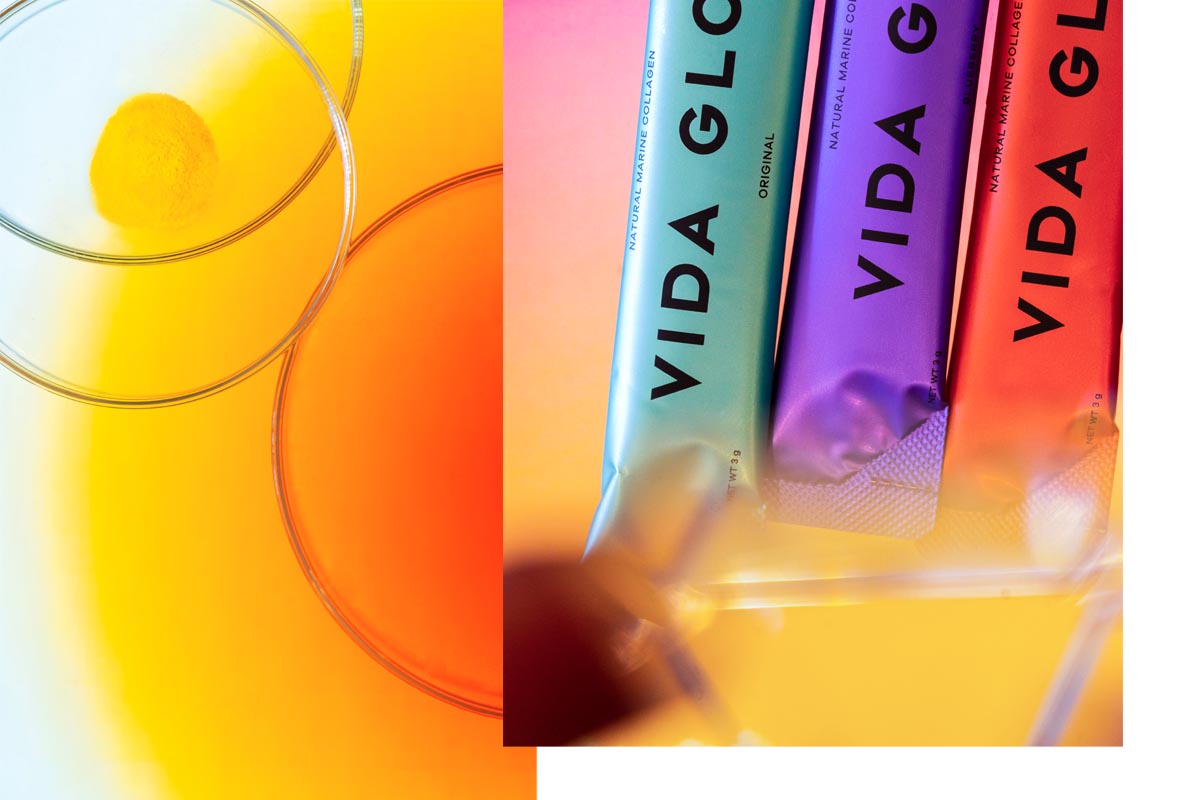
Have you ever looked through the seemingly countless supplement, vitamins, powders, elixirs and potions in the wellness market and felt bleakly cynical? I certainly have. With so many products and so much marketing noise on the store shelves, it seems impossible that all of these products could live up to their tall claims.
One of the most popular supplements of the last few years is ingestible collagen. These products are designed to improve skin health from the inside out. And in the case of ingestible collagen, it's always best to listen to the science. We spoke to dermatologist Dr Philip Tong of the Vida Glow Skin Professional Panel to find out more. Below, he explains what ingestible collagen does and how it's absorbed by the body.
What is collagen? And what does it do in the body?
Collagen is a naturally produced protein in our body and functions as a scaffold for many organs including the skin. Some other components of skin such as hair also benefit from collagen when it is broken down into amino acids that are the building blocks for keratin in hair. Our bodies make collagen but production slows with age.
How can ingestible collagen improve our skin?
Collagen is felt to improve the structure of skin, wound healing, and help with hair and nail health.
What gets better results? Topical collagen products or ingestible collagen products?
Topically applied collagen-based skin care products often fail to reach the deeper layers of skin and it is uncertain if they provide any clinical benefit. When ingested, early studies have shown that ingestible collagen products are capable of reaching the skin under laboratory conditions.
Why would collagen supplements be more beneficial than regular protein powders or supplements?
It was generally thought that collagen is hydrolysed into amino acids in the stomach and gastrointestinal tract prior to being absorbed into the blood circulation. However, there is increasing evidence that taking hydrolysed collagen, ie. collagen that has already been broken down into peptides, may be absorbed directly in the small intestine. Initial studies have shown collagen peptides to be found in the blood stream in 1-2 hours after ingestion of collagen peptides.
Where do collagen supplements come from?
There are three types of collagen supplements available which include hydrolysed collagen derived from marine (seafood), poultry (chicken or eggshells), or bovine (cattle); undenatured, meaning not broken down into smaller proteins or amino acids, collagen from chicken cartilage; and gelatin which is cooked collagen, which is also derived from animal sources.

How much collagen should you take per day for skin health?
It has recently been published that 2.5 to 15g per day of hydrolysed collagen peptides is considered safe and effective. It is always recommended to follow the recommended dietary intake found on the packaging. Hydrolysed collagen is more readily absorbed than other types. Daily doses of 2.5 grams could benefit skin health and hydration - as determined here and here.
How long does it take to start seeing results?
You may start to see results by one month of continuous intake however, it may take three to six months for visible changes to be seen in the skin.
What do you think more people should know about collagen supplements or skincare?
I think the general public are becoming more aware of what they are putting on their skin and how they can improve their overall skin health from within. There is a trend towards having healthy glowing skin rather than skincare as a beauty product.



